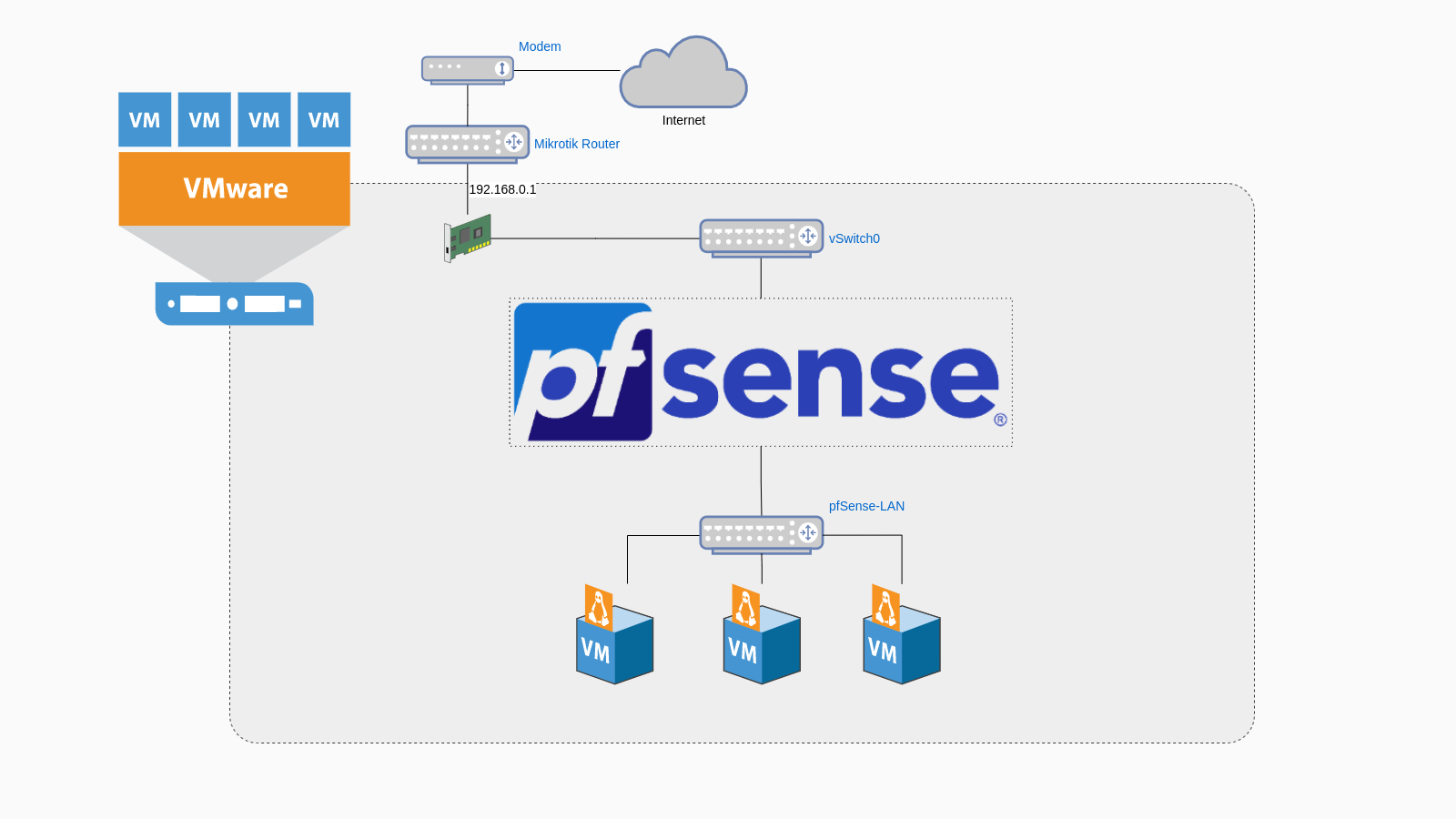pfSense 2.5 represents a significant milestone in the evolution of this popular open-source firewall and router platform. Built on FreeBSD, pfSense offers a robust and flexible solution for network security and management. One crucial component of this system is libcrypto.so.111, a shared library that plays a vital role in the cryptographic operations of pfSense.
The libcrypto.so.111 library is part of the OpenSSL toolkit, which provides essential cryptographic functions for secure communication and data protection. In pfSense 2.5, this library is integral to various features, including VPN connections, package management, and secure web administration. Understanding the relationship between pfSense 2.5 and libcrypto.so.111 is crucial for system administrators and network professionals who rely on this platform.
As pfSense continues to evolve, the importance of libcrypto.so.111 becomes increasingly apparent. This library ensures that pfSense can maintain high standards of security and performance, allowing users to leverage advanced cryptographic algorithms and protocols. By exploring the role of libcrypto.so.111 in pfSense 2.5, we can gain valuable insights into the inner workings of this powerful network operating system and its security mechanisms.
Understanding pfsense 2.5 libcrypto.so.111
pfsense 2.5 libcrypto.so.111 is a crucial component in the pfSense firewall system. This shared library file plays a vital role in cryptographic operations within pfSense 2.5. The libcrypto.so.111 library is part of the OpenSSL toolkit, providing essential functions for secure communication and data protection in pfSense 2.5.
The libcrypto.so.111 library serves as the backbone for cryptographic operations in pfSense 2.This shared object file contains a wide array of cryptographic functions, including encryption, decryption, digital signatures, and secure hashing algorithms. These functions are essential for maintaining the security and integrity of data as it flows through the pfSense firewall and router.
In pfSense 2.5, libcrypto.so.111 is utilized by numerous system components and packages. For instance, it supports the SSL/TLS protocols used in the web configurator, ensuring that administrative access to the pfSense interface remains secure. Additionally, this library is crucial for VPN functionalities, enabling the encryption of traffic for remote access and site-to-site connections.
The package management system in pfSense also relies heavily on libcrypto.so.11When installing or updating packages, the system uses cryptographic functions to verify the authenticity and integrity of downloaded files. This verification process is critical in preventing the installation of compromised or malicious software, thus maintaining the overall security of the pfSense installation.
Common Issues with pfsense 2.5 libcrypto.so.111
Users of pfSense 2.5 may encounter various issues related to libcrypto.so.111. One frequently reported problem is the “Shared object libcrypto.so.111 not found” error. This error typically occurs when the system cannot locate or load the required pfsense 2.5 libcrypto.so.111 file, often due to incomplete upgrades or conflicts with other system components.
Another common issue involves version mismatches between libcrypto.so.111 and other system libraries or applications. As pfSense evolves and updates are applied, there’s a possibility that certain components may require specific versions of libcrypto.so.11When these version requirements are not met, it can lead to stability issues or functionality breakdowns in affected features or packages.
Security vulnerabilities in libcrypto.so.111 can also pose significant challenges for pfSense 2.5 users. As cryptographic libraries are prime targets for exploitation, any discovered vulnerabilities in libcrypto.so.111 need to be addressed promptly to maintain the security integrity of the pfSense system. Staying informed about security advisories and applying updates in a timely manner is crucial for mitigating these risks.
Troubleshooting pfsense 2.5 libcrypto.so.111 Errors
When facing issues with pfsense 2.5 libcrypto.so.111, it’s important to follow a structured troubleshooting approach. Here are some steps to consider:
- Verify the presence and version of libcrypto.so.111
- Check system logs for specific error messages
- Ensure all system packages are up to date
- Investigate potential conflicts with third-party packages
- Attempt to reinstall the affected packages.
- Consider rolling back to a previous stable configuration
- Consult the pfSense documentation and community forums
By systematically working through these steps, users can often diagnose and resolve issues related to libcrypto.so.11It’s important to approach troubleshooting methodically, documenting each step and its outcome to help identify patterns or recurring issues.
In some cases, more advanced troubleshooting techniques may be necessary. This could involve manually replacing the libcrypto.so.111 file, adjusting system configurations, or even performing a clean installation of pfSense while carefully migrating existing settings. However, these advanced steps should only be undertaken with caution and a thorough understanding of their potential impacts on the system.
Remember that the pfSense community is a valuable resource for troubleshooting. Many users have encountered and resolved similar issues, and their experiences can provide valuable insights and solutions. Engaging with the community through official forums or support channels can often lead to quicker resolution of libcrypto.so.111-related problems.
Upgrading pfSense and Its Impact on libcrypto.so.111
Upgrading to pfSense 2.5 or subsequent releases can significantly affect the pfsense 2.5 libcrypto.so.111 library. The upgrade process often involves updating various system components, including cryptographic libraries like pfsense 2.5 libcrypto.so.111. It’s important to carefully review upgrade notes and requirements before proceeding, ensuring that all prerequisites related to pfsense 2.5 libcrypto.so.111 are met.
During a pfSense upgrade, the system typically replaces the existing libcrypto.so.111 file with a newer version. This update is designed to incorporate the latest security patches, performance improvements, and compatibility enhancements. However, the upgrade process can sometimes lead to complications, especially if there are custom configurations or third-party packages that depend on specific versions of libcrypto.so.111.
It’s important to note that upgrading pfSense may also require updates to other related libraries and system components. This interdependence means that a successful upgrade involves more than just updating libcrypto.so.111 in isolation. System administrators should carefully review the upgrade notes and requirements before proceeding, ensuring that all prerequisites are met and potential conflicts are addressed.
Best Practices for Managing libcrypto.so.111 in pfSense
Managing libcrypto.so.111 in pfSense 2.5 requires a proactive approach to ensure system stability and security. One of the most critical best practices is to maintain regular system updates. pfSense developers frequently release patches and updates that address vulnerabilities and improve the functionality of core components, including libcrypto.so.11By keeping your system up-to-date, you minimize the risk of encountering compatibility issues or security vulnerabilities related to this essential library.
Another important practice is to carefully manage package installations and updates. When installing new packages or updating existing ones, pay close attention to their dependencies and version requirements, particularly those related to libcrypto.so.11Some packages may require specific versions of this library, and mismatches can lead to system instability. Before performing any major updates or package installations, it’s advisable to create a backup of your pfSense configuration and consider testing changes in a non-production environment first.
Monitoring system logs is also crucial for effective management of libcrypto.so.11Regularly reviewing logs can help you identify potential issues early, such as failed cryptographic operations or library loading errors. Set up alerts for any critical errors related to libcrypto.so.111 to ensure prompt attention to potential problems. Additionally, consider implementing a monitoring solution that can track the performance and health of cryptographic operations on your pfSense system, providing insights into the efficiency and reliability of libcrypto.so.111 usage.
Alternative Solutions and Workarounds
When facing persistent issues with pfSense 2.5 libcrypto.so.111 , exploring alternative solutions and workarounds can be beneficial. One approach is to consider using pkg-static for package management operations. pkg-static is a statically linked version of the pkg utility that doesn’t depend on shared libraries like libcrypto.so.11This can be particularly useful when troubleshooting package-related issues or when the standard pkg command fails due to library conflicts.
Another potential workaround involves manually updating or replacing the libcrypto.so.111 file. This should be done with extreme caution and only as a last resort, as it can potentially lead to system instability if not performed correctly. Before attempting this, ensure you have a complete backup of your system and understand the risks involved. In some cases, obtaining the correct version of libcrypto.so.111 from a trusted source and manually placing it in the appropriate directory can resolve issues, but this approach should only be considered under guidance from experienced pfSense administrators or official support channels.
For users experiencing persistent problems with libcrypto.so.111, considering alternative firewall solutions might be an option. While pfSense is a robust and popular choice, other open-source firewall platforms like OPNsense or commercial solutions may offer different approaches to handling cryptographic libraries. However, migrating to a new platform should be carefully evaluated, considering factors such as feature compatibility, learning curve, and long-term support.
Performance Considerations and Optimization
The performance of pfSense 2.5 libcrypto.so.111 can significantly impact overall system efficiency, especially in environments with high cryptographic workloads. Optimizing the performance of this library and related cryptographic operations is crucial for maintaining a responsive and efficient firewall. One key consideration is hardware acceleration. Many modern processors offer built-in cryptographic acceleration features, such as AES-NI (Advanced Encryption Standard New Instructions). Ensuring that your pfSense installation is configured to utilize these hardware capabilities can dramatically improve the performance of operations relying on libcrypto.so.111.
Another aspect of optimization involves fine-tuning system parameters related to cryptographic operations. This may include adjusting kernel parameters, optimizing memory allocation for cryptographic processes, or configuring caching mechanisms to reduce the overhead of frequent cryptographic operations. However, these optimizations should be approached cautiously and ideally tested in a controlled environment before being applied to production systems.
Regularly monitoring the performance of cryptographic operations can provide valuable insights for optimization. Utilize built-in pfSense tools or third-party monitoring solutions to track metrics such as CPU usage during cryptographic tasks, memory utilization by libcrypto.so.111, and the throughput of encrypted connections. This data can help identify bottlenecks and guide further optimization efforts, ensuring that your pfSense system maintains optimal performance even under heavy cryptographic loads.
Frequently Asked Questions (FAQs)
What is libcrypto.so.111 and why is it important for pfSense 2.5?
libcrypto.so.111 is a shared library that is part of the OpenSSL toolkit. It provides essential cryptographic functions for pfSense 2.5, supporting various security features including VPN connections, secure web administration, and package verification.
How can I check if libcrypto.so.111 is present and functioning correctly on my pfSense system?
You can use the command “ls -l /lib/libcrypto.so.111” to check if the file exists. Additionally, running “ldd /usr/local/sbin/pkg” can show if pkg is correctly linked to libcrypto.so.111.
What should I do if I encounter the “Shared object libcrypto.so.111 not found” error?
This error often indicates a mismatch between the installed version of libcrypto and the one required by the system. Try updating your pfSense installation to the latest version within your current major release. If the issue persists, you may need to perform a clean installation or seek assistance from the pfSense community forums.
Can I manually update libcrypto.so.111?
While it’s technically possible, manually updating system libraries like libcrypto.so.111 is not recommended and can lead to system instability. It’s always better to update through official pfSense update channels.
How does libcrypto.so.111 affect VPN performance in pfSense 2.5?
libcrypto.so.111 plays a crucial role in VPN performance as it handles many of the cryptographic operations. Ensuring you have the correct version and that it’s optimized for your hardware can significantly improve VPN throughput and latency.
Future Developments and Updates for pfSense and libcrypto.so.111
The future of pfSense 2.5 libcrypto.so.111, is closely tied to ongoing developments in network security and cryptography. As cyber threats continue to evolve, the cryptographic libraries that form the backbone of security systems like pfSense must adapt and improve. Future updates to libcrypto.so.111 are likely to focus on implementing newer, more secure encryption algorithms and protocols, as well as improving performance and compatibility with emerging hardware technologies.
One area of potential development is the integration of post-quantum cryptography. As quantum computing advances, there’s a growing need for cryptographic algorithms that can withstand attacks from quantum computers. Future versions of libcrypto.so.111 may incorporate these new algorithms, ensuring that pfSense remains secure in a post-quantum world. This transition will require careful planning and implementation to maintain compatibility with existing systems while introducing these new security measures.
Another aspect of future development may involve improving the modularity and flexibility of cryptographic components in pfSense. This could lead to a more adaptable system where updates to libcrypto.so.111 and related libraries can be applied more seamlessly, reducing the likelihood of compatibility issues during system upgrades. Additionally, future versions of pfSense may offer more granular control over cryptographic settings, allowing administrators to fine-tune the balance between security and performance based on their specific needs and hardware capabilities.















